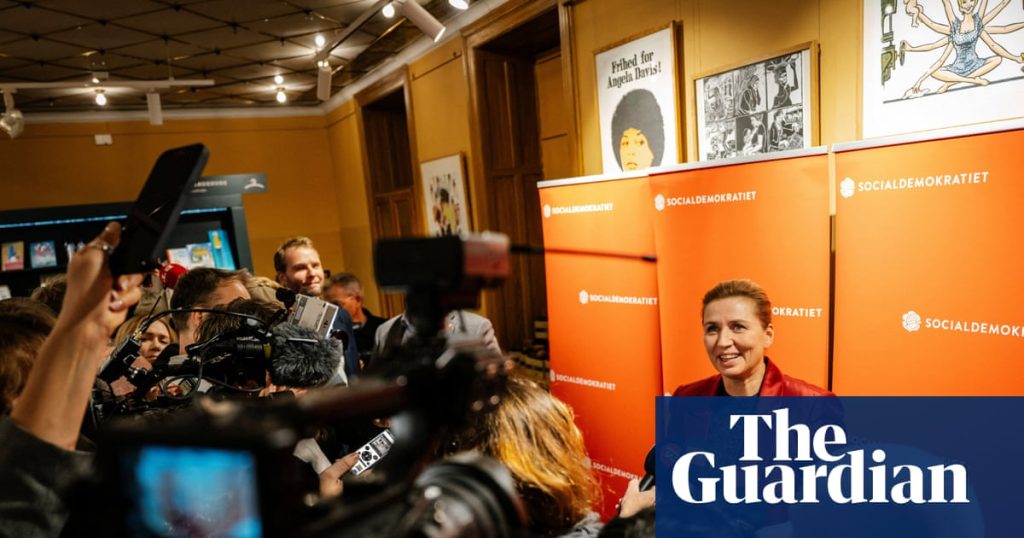To little fanfare and few international headlines, Denmark just announced one of the world’s most ambitious climate targets.
The unusually wind-powered and cycle-friendly Nordic nation – whose ruling Social Democrats suffered a setback in elections on Tuesday – promised on Monday to cut planet-heating pollution by at least 82% by 2035 from 1990 levels. The goal inches past the UK’s landmark 81% target for that year and races ahead of the EU’s rather wide goal of 66.3% to 72.5%.
Those numbers may seem strange to celebrate given that most countries the UN classifies as developed have already promised to reach net zero emissions by the middle of the century. But climate scientists have long warned that the path to a clean economy matters as much as the exact end date. Delay too much action till the 2040s, as cash-strapped governments are wont to do, and even those who go fully green by 2050 will risk having already pumped out too much pollution.
Despite these warnings, announcements such as Denmark’s are a rarity among the European ministers attending the Cop30 climate summit in Brazil this month. Governments across the continent have attacked green rules with increasing ferocity over the past two years, rolling back existing policies and watering down new ones – all while professing their commitment to existing climate targets.
The EU, meanwhile, is energetically “simplifying” (read: rolling back) ambitious climate policies under the banner of increasing the bloc’s competitiveness.
The beating that Europe’s famous Green Deal is taking at home has begun to undermine its pleas for urgent climate action on the world stage. European countries are some of the biggest historical polluters of greenhouse gas, but have long championed stronger action at UN summits. Last week, as negotiators converged on the Amazonian city of Belém, situated on the edge of the beleaguered rainforest, the European parliament voted to weaken a law to stop deforestation in supply chains and to restrict the scope of its green business rules.
The blow to the corporate sustainability directive – the first of several “omnibus” deregulation packages pushed by the commission – attracted anger from green groups for removing an obligation on companies to create climate transition plans. These would force firms to explain how they are aligning business practices with the 1.5C global heating target, which countries agreed at a landmark climate summit in Paris 10 years ago.
Adding fuel to the fire, the centre-right European People’s Party (EPP) voted with the far-right – who centrists have traditionally shunned – to win the vote. The surprise breakdown of the EU firewall comes one month after the fraying cordon sanitaire gave way in France, and in a year in which Germany’s Brandmauer has been chipped.
Alberto Alemanno, a law professor and founder of the Good Lobby, which last week launched a tracker to monitor centre-right collaborations with the far-right, said the vote “not only dismantles the Green Deal, but also redefines the political majority governing Europe from now until 2029”.
“For the first time in EU history, the pro-EU centrist parties that have built and governed the EU since its inception are being sidelined,” he said. “And they bear responsibility for their own demise.”
The positions adopted last week will still need to be negotiated with the 27 EU governments and the commission before final versions of the laws come into force. And while the political firewall may be cracking, Europe has not abandoned its efforts to stop heating the planet.
Sign up to This is Europe
The most pressing stories and debates for Europeans – from identity to economics to the environment
Privacy Notice: Newsletters may contain information about charities, online ads, and content funded by outside parties. If you do not have an account, we will create a guest account for you on theguardian.com to send you this newsletter. You can complete full registration at any time. For more information about how we use your data see our Privacy Policy. We use Google reCaptcha to protect our website and the Google Privacy Policy and Terms of Service apply.
after newsletter promotion
The EU’s new climate target, also voted through by lawmakers last week, is ambitious enough for diplomats to brag about in Brazil. It aims for a 90% drop in greenhouse gas emissions by 2040 from 1990 levels – the minimum that its scientific advisers recommend – though it leaves the door open for 5% of those cuts to come from foreign carbon credits that scientists and journalists have repeatedly found to be junk.
The inclusion of such “flexibilities” – a compromise to win over member states reluctant to sign off on a high headline figure – meant that the EU did not turn up to Cop30 empty-handed. That in itself puts it ahead of other big polluters such as China, which has become a clean energy powerhouse but refuses to commit to ambitious targets, and the US, which did not even show up.
To receive the complete version of This Is Europe in your inbox every Wednesday, please subscribe here.

